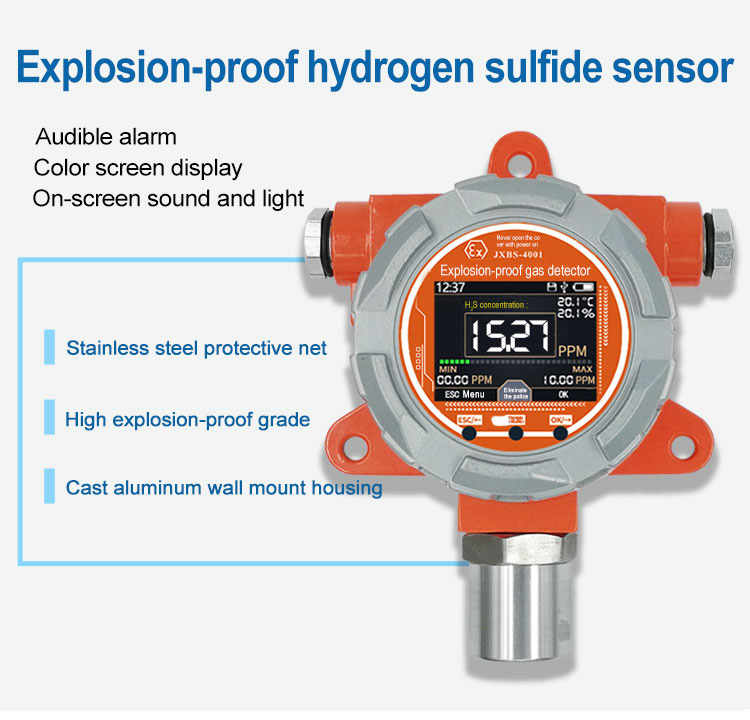Gas detector alarm have become crucial devices in safeguarding lives and properties by detecting and alerting occupants to the presence of hazardous gases. Whether in residential or commercial settings, these alarms provide early warning signs, allowing for prompt action to prevent potential gas-related accidents. This article will explore the significance of gas detector alarms, explain how they work, highlight their importance in ensuring safety, and emphasize their role in mitigating gas-related risks.

The Importance of Gas Detector Alarms:
Hazardous gases, such as carbon monoxide (CO), natural gas, propane, methane, and hydrogen sulfide, can pose significant risks to human health and safety. Gas detector alarms play a vital role in identifying gas leaks before they reach dangerous levels. By providing early warnings, these alarms help prevent gas-related incidents, including fires, explosions, and asphyxiation.
How Gas Detector Alarms Work:
Gas detector alarm utilize various sensing technologies to detect the presence of specific gases. Common detection methods include:

a) Catalytic Sensors: These sensors detect flammable gases by measuring changes in temperature caused by combustion. They are commonly used to detect gases such as natural gas, propane, and methane.
b) Electrochemical Sensors: These sensors measure the concentration of toxic gases, such as carbon monoxide or hydrogen sulfide, through chemical reactions that generate an electrical current. They are highly sensitive and widely used in residential and industrial settings.
c) Infrared Sensors: These sensors detect certain gases by analyzing the absorption of infrared light. They are often used to detect hydrocarbon-based gases, such as methane.
When a gas leak is detected, the alarm triggers audible and sometimes visual alerts to notify occupants, prompting them to take immediate action.
Importance in Ensuring Safety:

a) Early Detection: Gas detector alarm provide early warning signs of gas leaks, allowing occupants to take immediate action to avoid potential hazards. This includes evacuating the premises, shutting off gas supply valves, and contacting emergency services.
b) Fire Prevention: Gas leaks can be a significant fire hazard. By early detection of combustible gases, gas detector alarms prevent fires by alerting users to the presence of gas.
c) Preventing Asphyxiation: Certain gases, such as carbon monoxide or hydrogen sulfide, can cause asphyxiation when present in high concentrations. Gas detector alarms quickly identify these toxic gases, giving occupants the opportunity to evacuate and seek medical assistance if necessary.
d) Industrial Safety: Gas detector alarm play a critical role in industrial settings where workers may be exposed to hazardous gases. These alarms protect employees by providing early warnings and enabling them to adhere to safety protocols, such as donning personal protective equipment or evacuating the area.
Tips for Proper Use and Maintenance:
a) Correct installation: We install gas detector alarms near potential gas leak sources such as gas stoves and water heaters. Follow manufacturer guidelines to ensure correct placement.
b) Regular Testing: Test the alarm regularly to verify its functionality and audibility. Most alarms have a “test” button that allows for quick and easy testing.
c) Calibration and Maintenance: Gas detector alarms may require periodic calibration to maintain accurate readings. Follow the manufacturer’s recommendations regarding calibration and perform regular maintenance checks.
d) Battery Replacement: If gas alarm is battery power, when we hear the alarm prompt battery when the battery is low, replace the battery in time.
The importance of education and awareness: Proper gas safety education and awareness is crucial. Educate residents about gas hazards and the importance of gas alarms. Encourage them to report any gas-related concerns promptly.
Conclusion:
Gas detector alarm are vital devices for ensuring safety in homes and workplaces. By alerting homes to the presence of dangerous gases, these alarms allow early action to prevent potential accidents. Proper installation, regular testing, and maintenance are essential for their effectiveness. By increasing safety awareness, the use of gas detector alarms can greatly reduce risks and provide a safer environment.
